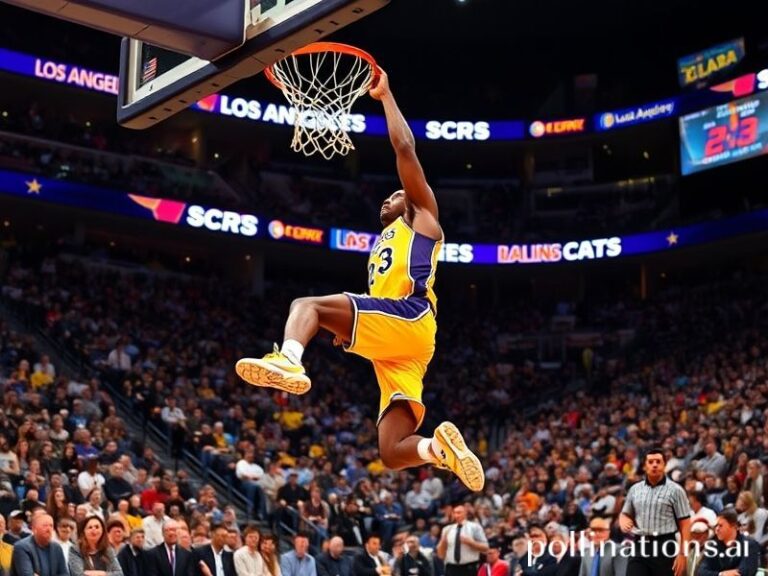Global Gamble: How Betway Became the World Bookie in Your Pocket
The Planet Wagers On: How a Quiet Maltese Brand Became the House Bank for a Restless Earth
By the time the final whistle blew in last month’s Copa Libertadores final, Betway’s odds ticker had already refreshed for the Bangladesh Premier League, a lower-division Belarusian reserve match, and a competitive thumb-wrestling semi-final in an undisclosed Siberian basement. One company, 25-odd licences, and a bandwidth bill that rivals the GDP of several Pacific micro-states—welcome to the newest form of soft imperialism, served with a side of in-play cash out.
Betway began life in 2006 as yet another micro-dotted dot-com on the rocky shores of Malta, a jurisdiction whose primary exports are limestone, honey, and creative interpretations of EU tax code. Sixteen years later it has metastasised into the polite bookmaker of choice from Lagos to Lima, sponsoring West Ham’s shirts, the Ninjas in Pyjamas e-sports clan, and—if local street posters are to be believed—every second kebab shop in Istanbul. The brand’s colour scheme is now as globally recognisable as dengue fever, and statistically just as hard to shake.
The secret sauce is not technological wizardry—everyone has an app that lets you lose money faster than a tourist in a Bangkok tuk-tuk—but rather a marketing strategy that weaponises our species’ oldest addiction: hope. While traditional empires needed gunboats, Betway needs only a 4G signal and a vague promise that the underdog might, just this once, not disappoint you like everything else in your life. In that sense it is the perfect multinational for our times: no messy invasions, just gentle nudges toward self-inflicted financial seppuku.
Consider Kenya, where mobile-money penetration turned every matatu ride into a rolling casino. When the government tried to impose a 20 % excise tax on stakes last year, Betway’s lobbyists—sorry, “industry consultants”—framed it as a regressive attack on ordinary hustlers trying to beat inflation. The bill was quietly shelved after an undisclosed number of “capacity-building workshops” in coastal resorts. Meanwhile, the average Kenyan now spends more on betting than on public healthcare, according to data the government refuses to collect.
Across the Atlantic, Brazil’s 2018 liberalisation of sports betting was hailed as a victory for consumer choice. Today, commentators note that the country’s GDP growth projections now fluctuate with Neymar’s hamstring. In India, where regulation is a patchwork quilt stitched by state-level bureaucrats with varying levels of literacy, Betway dances between VPNs and UPI wallets like a seasoned Delhi lawyer. The result is a grey market so vibrant it could power a small city, assuming that city runs on FOMO and unpaid electricity bills.
Europe, of course, pretends it has the moral high ground. The UK’s Gambling Commission issues stern press releases while Premier League clubs stuff training-kit sleeves with QR codes. Germany’s new interstate treaty is 257 pages long and comprehensible only to people who also enjoy assembling IKEA wardrobes blindfolded. Italy bans advertising during matches, so Betway simply sponsors the halftime highlight reel—proof that when God closes a door, lobbyists install a revolving one.
The broader significance? We are watching the birth of a post-national revenue stream, one that floats above borders like a smug cloud of crypto-flavoured vape smoke. Governments get taxes, leagues get sponsorship, punters get dopamine, and everyone agrees not to ask what happens when the dopamine runs out. Climate change may sink the Maldives, but the odds on the exact minute the last palm tree topples will still be trading online—decimal places courtesy of a server farm in Curaçao.
In the end, Betway is merely the bookmaker; humanity itself supplies the house edge. We queue up, thumb hovering over “Place Bet,” convinced that this time the universe will cut us a break. Spoiler: it won’t. But the app will be there tomorrow, cheerfully translating existential dread into over/under markets on the apocalypse. And really, who among us isn’t at least a little curious what price they’ll offer on that?







